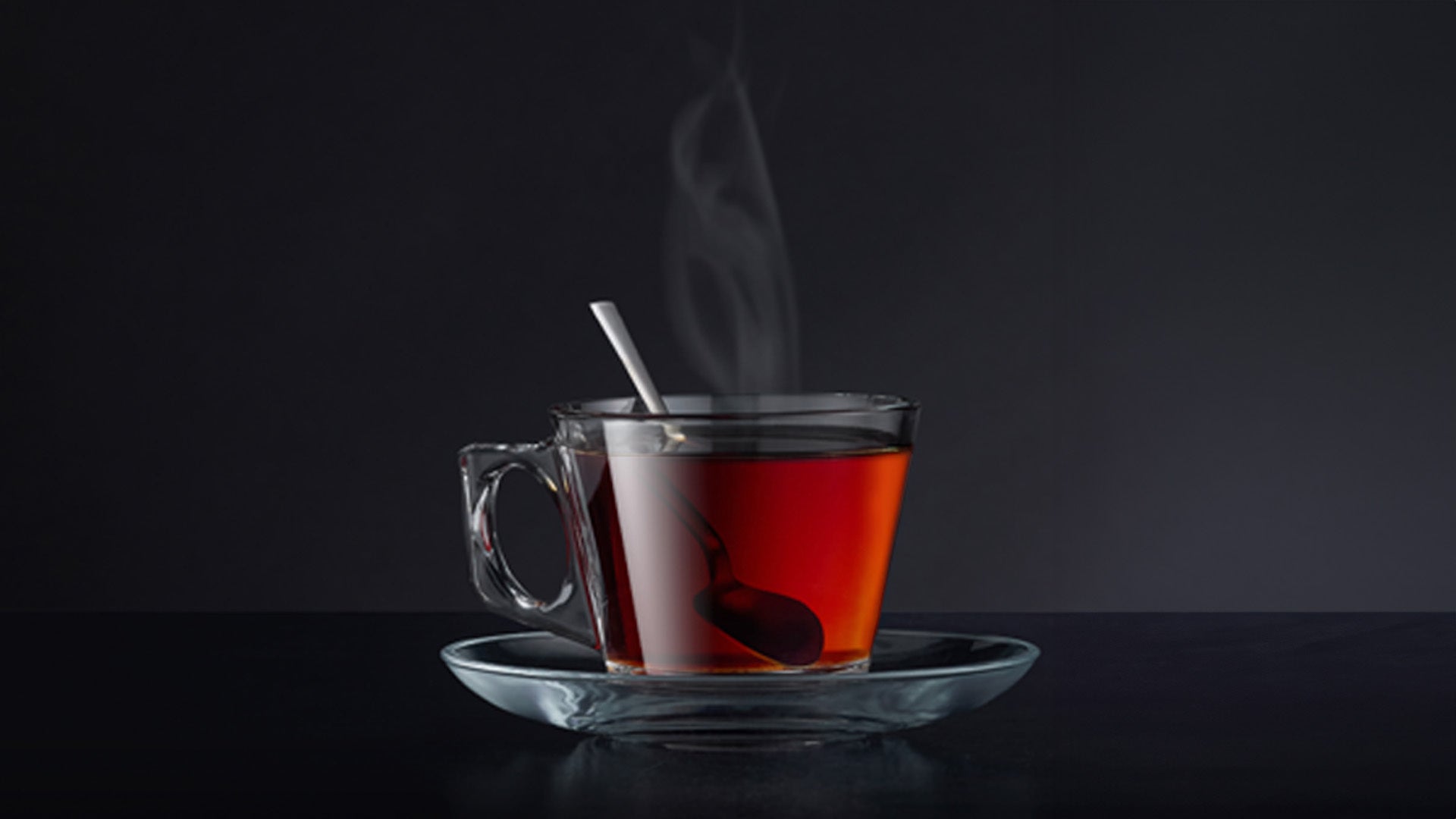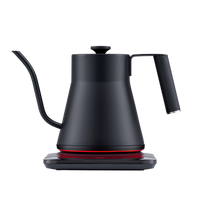how does turkish tea compare to other global teas?

Summary: Tea is one of the most popular beverages in the world, with a wide variety of different types to choose from. Turkish tea is a popular choice in Turkey, but it is also becoming increasingly popular in other parts of the world. In this blog post, we will compare Turkish tea to other popular types of tea, including English tea, Chinese tea, Indian tea and other wellness teas.
Turkish tea, affectionately known as 'çay' (pronounced 'chai'), is not just a beverage; it's a cultural emblem deeply ingrained in the traditions of Turkey. Originating from the lush, rain-soaked hills of the Black Sea region in the early 20th century, Turkish tea has grown to become a symbol of warmth and friendship. This region's perfect climate for tea cultivation marked the start of a rich tradition that defines much of Turkish culture today.
In Turkey, offering a cup of tea is a significant gesture that extends beyond simple hospitality. It reflects the communal spirit and the importance of kinship, making refusing a cup almost unheard of in Turkish social etiquette. Drinking Turkish tea is more than just enjoying a beverage; it's participating in a journey steeped in history and flavor, emblematic of the nation’s communal and welcoming spirit.
What Makes Turkish Tea Special?
1. Origin and Flavor:
Imagine sipping a tea that carries the essence of the lush, misty slopes of the Black Sea coast. That's Turkish tea for you. It boasts a distinctive, robust flavor, typically enjoyed in its purest form without the addition of milk or sugar. This bold character, stemming from the unique climate and soil conditions of the region, sets Turkish tea apart from global counterparts like Indian or British tea, offering a grounding and invigorating tea experience.
2. The Art of Preparation:
The traditional brewing process of Turkish tea is a spectacle in itself, centered around the çaydanlık, a unique two-tiered teapot. The bottom pot boils water, while the top infuses the tea leaves to create a concentrate that captures the full essence of the tea.
Modern devices like the TeaSmart Turkish Tea Maker and Chaiovar Electric Russian Samovar have brought convenience to this traditional method, allowing the essence of the brewing technique to be preserved while adapting to contemporary needs. The key to perfect Turkish tea lies in its brewing; the longer it steeps, the richer the flavor, with each cup customizable from light to strong to suit individual tastes.
3. Cultural Significance:
In Turkey, tea transcends the simple act of drinking; it's a profound symbol of hospitality and companionship. Typically served in elegant tulip-shaped glasses that accentuate its deep amber hue, Turkish tea is both a visual and sensory treat. These gatherings are not just about quenching thirst but about forming bonds and sharing moments, reflecting the communal spirit and kinship that are pivotal in Turkish culture.
How Does Turkish Tea Differ from Other Teas?
Turkish tea uniquely bridges the gap between the various global tea traditions. Unlike English Breakfast tea, which tends to have a milder profile and is commonly enjoyed with milk and sugar, Turkish tea offers a straightforward yet bold taste, served in its purest form.
It stands in contrast to Indian chai, which is rich in spices, by providing a less intense but more assertive flavor profile. This makes Turkish tea a versatile choice that appeals to a wide range of palates, from tea connoisseurs to curious beginners.
Brewing the Perfect Cup
Crafting the perfect cup of Turkish tea at home involves using a çaydanlık or a modern electric Turkish tea maker. The key is using high-quality black tea leaves and, if following tradition, some beet sugar cubes. The art of brewing Turkish tea lies in balancing the steeping time to achieve the desired strength, best enjoyed in tulip-shaped glasses to enhance the tea drinking experience.
Caffeine Content: A Comparative Perspective
As a predominantly black tea, Turkish tea has a moderate caffeine content, though it can be higher than average due to the strength of its brew. This positions it between the lighter caffeine content of green and white teas and the higher levels found in coffee.
Health and Enjoyment: Best of Both Worlds
Beyond its enjoyable taste, Turkish tea is rich in antioxidants, contributing to potential health benefits such as improved heart health and a reduced risk of certain diseases. It offers a balanced choice for those looking to enjoy a beverage that supports well-being without sacrificing flavor.
Turkish Tea vs Other Popular Teas
More about Caffeine Content in Teas & Coffee:
Understanding the caffeine content in different types of beverages can help you make informed choices about what to drink and when. Here's a breakdown of the typical caffeine amounts found in various teas and coffee:
1. Black Tea (including Turkish Tea): A cup of black tea contains between 14-70 mg of caffeine. Due to the stronger brewing method of Turkish tea, its caffeine content may often be on the higher end of this range.
2. Oolong Tea: This tea variety has a caffeine content ranging from 12-55 mg per cup, offering a moderate boost.
3. Green Tea: Known for its subtle stimulating effects, green tea provides 8-36 mg of caffeine per cup, making it a lighter choice.
4. White Tea: With only 6-25 mg of caffeine per cup, white tea contains the least caffeine among traditional teas, suitable for those sensitive to stimulants.
5. Coffee: Far surpassing the caffeine content of tea, a typical cup of coffee can contain 95-200 mg of caffeine, making it the go-to for a stronger energy boost.
Whether you're looking for a mild pick-me-up or a substantial boost to start your morning, understanding these caffeine differences can guide your beverage choices throughout the day.

Turkish Tea vs. Other Wellness Teas
Tea in Turkey is not only famous for its unique preparation methods and cultural importance but has also gained recognition in the wellness space. Here’s how it compares to other popular wellness teas:
1. Green Tea (Japan and China): Known for its potential cancer-fighting properties and moderate caffeine level, green tea can aid in weight loss but may develop a bitter taste if brewed too long or at too high a temperature. Unlike Turkish tea, its flavor is less robust and more delicate.
2. Chamomile Tea: An herbal tea celebrated for its calming effects, chamomile is caffeine-free and supports anxiety management and sleep improvement. However, it lacks the strong cultural and social traditions that enrich the experience of drinking Turkish tea.
3. Ginger Tea: This herbal tea is reputed for aiding digestion and alleviating inflammation and nausea. Its spicy and warm flavor contrasts with the boldness of Turkish tea but does not carry the same cultural significance.
4. Peppermint Tea: With a refreshing taste, peppermint tea is often used for digestive health. Like chamomile and ginger, it is caffeine-free but does not share the rich cultural backdrop of Turkish tea.
Health Note: Moderation is key in tea consumption, as excessive intake can lead to adverse effects.
Choosing the Right Tea:
- Turkish Tea is ideal if you enjoy a robust flavor accompanied by a rich cultural tapestry.
- Green, Chamomile, Ginger, or Peppermint Tea may suit you if you prioritize specific health benefits without the need for caffeine.
- English or Chinese Tea offers a gentler flavor, while Indian Tea brings a hint of spice.
For enthusiasts of diverse tea types, including green, herbal, oolong, or white tea, the Luna provides a modern tool for brewing a perfect cup tailored to individual tastes.
Adding Turkish Tea into Your Wellness Routine
Turkish tea isn't just a beverage; it's an enriching part of mindfulness practices, offering a blend of tradition, sensory pleasure, and cultural richness that helps focus on the present moment. Here are several ways to weave Turkish tea into your daily wellness routine:
1. Start Your Day with Tea: Begin your mornings with Turkish tea to enjoy a gentle energy boost, thanks to its natural caffeine content. This milder alternative to coffee enhances mental clarity and focus, making it perfect for work or study sessions, and aids in kick-starting your digestion.
2. Stay Hydrated: Regular consumption of Turkish tea throughout the day can contribute to meeting your daily hydration needs. Unlike other caffeinated drinks, tea typically does not produce a diuretic effect unless taken in large quantities.
3. Promote Relaxation: Cultivate the habit of winding down your day with a cup of Turkish tea. The ritual of brewing and savoring your tea can be particularly soothing, helping to induce relaxation.
4. Mindful Moments: Integrate Turkish tea into your mindfulness or meditation practices. The process of brewing, pouring, and enjoying your tea can enhance your focus and bring a tranquil pause to your day.
5. Natural Body Protection: The natural compounds in Turkish tea leaves, such as antioxidants, help combat inflammation. Regular consumption can bolster your overall health and well-being.
6. Social Connection: While Turkish tea is often enjoyed socially in tea houses or gardens in Turkey, it can also enhance your emotional well-being at home, whether you're sharing it with friends or enjoying a solitary, reflective moment.
Wrap Up
Exploring the delights of Turkish tea offers more than just a sip of its robust flavor—it’s an invitation to a rich cultural journey and a step towards embracing wellness. As Turkish tea gains popularity, it becomes evident that its value extends beyond its health benefits. The cultural depth, unique taste, and opportunity for mindful consumption position Turkish tea as a comprehensive wellness beverage.
At SAKI, we are dedicated to providing an authentic Turkish tea experience, making it easy and enjoyable to integrate this traditional drink into your daily routine. Discover the health secrets of Turkish tea and enhance your wellness practices today with the convenience of our TeaSmart Turkish Tea Maker or Chaiovar Electric Russian Samovar.
Common Questions & Answers
Q: Does Turkish tea contain caffeine?
A: Yes, Turkish tea contains caffeine, but it has less than coffee, making it a great alternative for those seeking a milder stimulant.
Q: How can I brew Turkish tea at home?
A: Brewing Turkish tea at home is easy! You'll need a çaydanlık or an electric kettle like the TeaSmart, quality black tea leaves, and optionally, beet sugar to enhance the flavor.
Q: Can I add milk to Turkish tea?
A: Traditionally, Turkish tea is served without milk. However, feel free to customize your cup of tea as you like!
Q: Where can I buy authentic Turkish tea products?
A: SAKI offers authentic Turkish tea products for those seeking the genuine experience.







